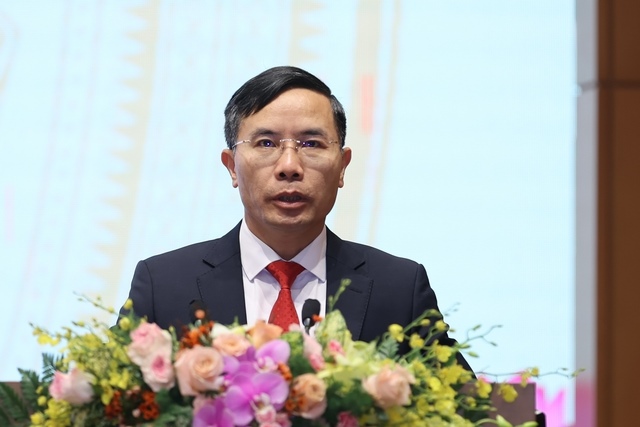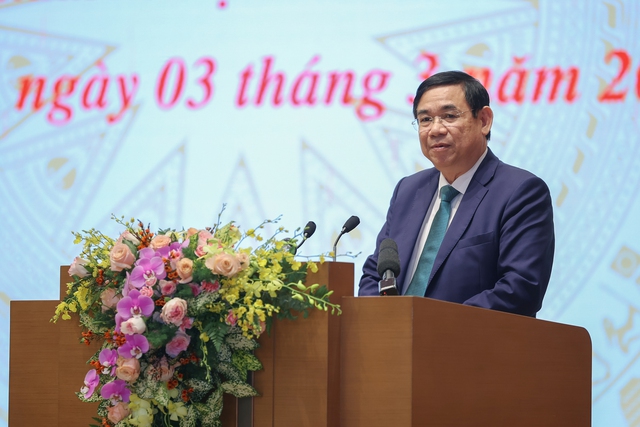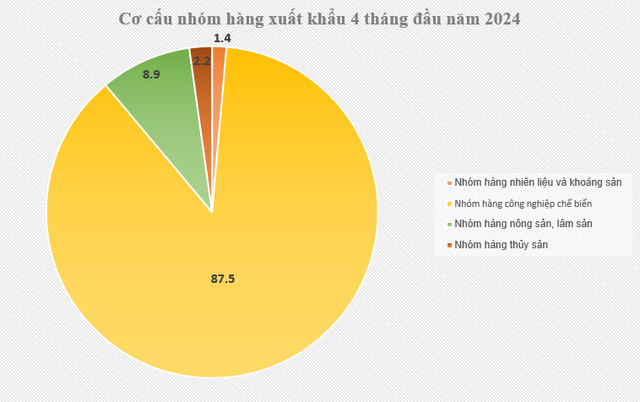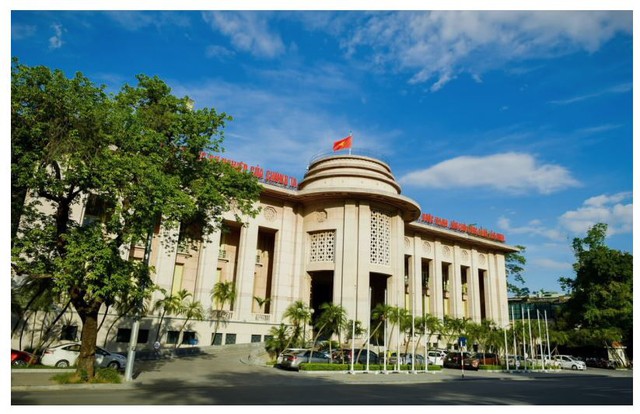
Mr. Pham Duc An, Chairman of Agribank’s Board of Directors. Photo: VGP
|
According to Mr. Pham Duc An, Agribank’s total assets are currently over 2 million trillion dong, with mobilized capital reaching 1 million 885 billion dong and lending balance reaching 1 million 550 billion dong. Among them, the agriculture, rural areas, and farmers sector accounts for nearly 65%.
In his assessment, the economic situation in 2024 is still challenging, with even signs of recession, negatively affecting the business operations of domestic enterprises. Chairman of Agribank believes that, despite the decrease in mobilized interest rates, deposits continue to flow into the banking system, and the demand for capital has declined due to the unimproved production and consumption needs of goods, resulting in excess capital in many commercial banks, increasing interest payment costs for commercial banks.
At Agribank, currently, for every 100 dong of deposits mobilized, only over 80 dong can be lent out, although since the beginning of 2024, the bank has proactively adjusted down lending rates and implemented credit programs totaling more than 120,000 billion dong with lower interest rates from 2.5-3% compared to normal interest rates to encourage and support customers. However, the bank’s income in the first two months of 2024 has decreased by nearly 1,200 billion dong compared to the same period.
Offering some suggestions, Mr. Pham Duc An proposed, firstly, addressing the obstacles and shortcomings related to mechanisms, policies, and barriers regarding responsibilities and public ethics, which need to be clarified and provided with specific solutions to instill confidence and encourage business development.
Secondly, in the current conditions, fiscal policies, especially public investment and support for businesses, are the key to stimulating production and consumption, thereby increasing the demand for capital, and allowing the commercial banks’ capital to be put into more effective use.
“The government needs to implement incentive measures, support businesses in green transformation to meet international trends and standards,” emphasized the Chairman of Agribank.

Mr. Phan Duc Tu – Chairman of BIDV’s Board of Directors. Photo: VGP
|
As the largest Joint Stock Commercial Bank in Vietnam in terms of total assets, Mr. Phan Duc Tu – Chairman of the Board of Directors of Bank for Investment and Development of Vietnam (BIDV, HOSE: BID) suggested that the Government, ministries, and sectors promptly issue regulations to implement the amended Effective Credit Institutions Law from July 1, 2024. Continue to improve technological infrastructure to create conditions for state-owned enterprises, including commercial banks, to develop modern products and services.

Deputy Governor of the State Bank of Vietnam (SBV) Pham Thanh Ha. Photo: VGP
|
At the regular Government meeting in February, Deputy Governor of the State Bank of Vietnam (SBV) Pham Thanh Ha said that in the first two months of 2024, credit growth was recorded at a relatively low level, even negative, especially at many large banks. Banks have abundant liquidity, and they are ready to provide capital to the economy.
In the coming time, SBV will continue to review documents based on the newly issued Effective Credit Institutions Law, and make appropriate modifications to ensure easier access to loans for customers.
In addition, there needs to be consistent coordination of policies among agencies, and enhance the effectiveness of funds such as credit insurance fund for small and medium-sized enterprises, and the fund for the development of small and medium-sized enterprises to improve the credit access capabilities of businesses.
In terms of borrowers, the Deputy Governor recommended that businesses actively seek operational solutions and have more feasible investment and business projects. Additionally, they should enhance financial transparency and capacity to facilitate lending institutions’ appraisal and provide more favorable lending conditions in the future.
Abundant liquidity, credit growth expected from Q2/2024.
Tung Phong





































